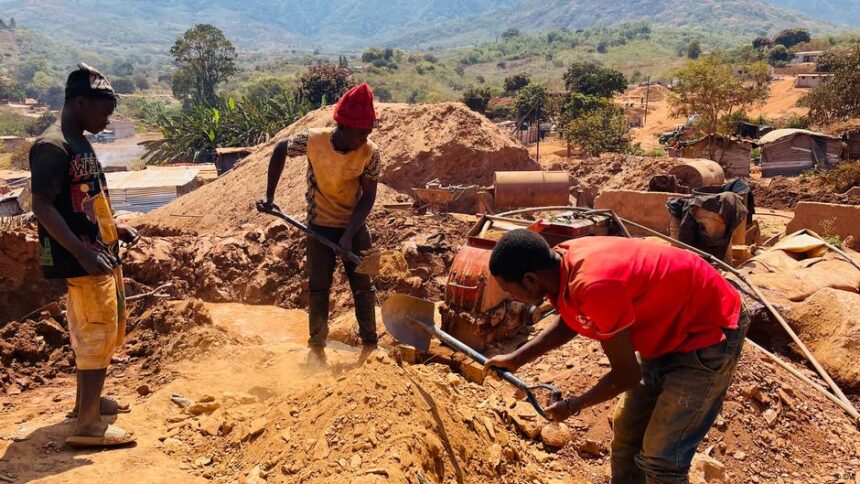In a concerning trend, thousands of illegal gold miners, known as ‘garimpeiros’, are converging on the gold-rich region along the Revue River and its tributaries in western Mozambique. This influx includes not only locals but also individuals from neighboring countries such as Zimbabwe, Malawi, and Zambia. The miners are motivated by the hope of a better life despite the significant environmental degradation and health risks associated with their activities.
The mining methods employed by these individuals often involve toxic chemicals such as mercury, cyanide, and arsenic, which are used to extract gold from the surrounding rock and sediment. Unfortunately, these harmful substances are leaching into the soil and waterways, creating serious consequences for both local ecosystems and communities reliant on these water sources. The Chicamba Dam, a vital source of drinking water for the region, has been particularly affected by this pollution.
In response to the growing crisis, the provincial government of Manica has announced plans to crack down on informal mining operations and enforce stricter regulations on licensed mining activities. Governor Francisca Tomas has emphasized the need for sustainable mining practices and the importance of keeping rivers clean, highlighting their essential role not only in agriculture but also in providing drinking water for the population.
Despite the presence of licensed mining companies like Xtract Resources plc and Horizonte Minerals plc, which claim compliance with environmental standards, the situation remains dire. These companies emphasize their contributions to the local economy through taxes, yet they too are under scrutiny as government officials pursue a comprehensive review of all operations in the region.
The Manica District is known for its rich gold reserves, but illegal mining practices have surged, with many individuals operating outside existing regulatory frameworks. The consequences are evident: riverbeds are drying, water quality is deteriorating, and sedimentation is increasingly obstructing waterways. These conditions have worsened despite efforts by local authorities to intervene.
Illegal miner Leonardo Beissicopo candidly described his rudimentary method, which disregards environmental safeguards. “First we grind the sand, then we use carpets to catch the gold. After that, we add mercury to bind the gold. And the wastewater flows straight into the rivers,” he admitted, demonstrating a blatant disregard for the ecological damage being done. His fellow miner, Veloso Elias, acknowledged the health risks posed by mercury but felt he had no alternatives to continue providing for his family.
Recognizing the severity of the problem, Governor Tomas is now seeking support from traditional and religious leaders to help raise awareness and ensure compliance with new regulations. She has made it clear that collaboration is essential to control illegal mining activities and mitigate their environmental impact. “We’re facing a serious problem,” she stated, noting the degradation of water sources and the alarming levels of silt affecting the Chicamba Dam.
Environmental activist Bernardo Xavier has voiced his concerns about the public health implications tied to pollution from mining operations. He has noted that many local residents are forced to drink contaminated water and has called for stricter enforcement of ecological standards in the mining sector to protect long-term water quality.
However, raising awareness among miners poses significant challenges, as many live in dire poverty. “Their main priority is feeding their families,” Xavier explained. “When authorities crack down, they disappear for a while—but they always return.” The issue is compounded by the fact that many miners are not local residents, which further complicates law enforcement efforts.
Despite government efforts to curtail informal mining, the ongoing influx of garimpeiros from nearby countries and the perceived lack of options for the local population continue to fuel the illegal mining crisis in Manica province.







